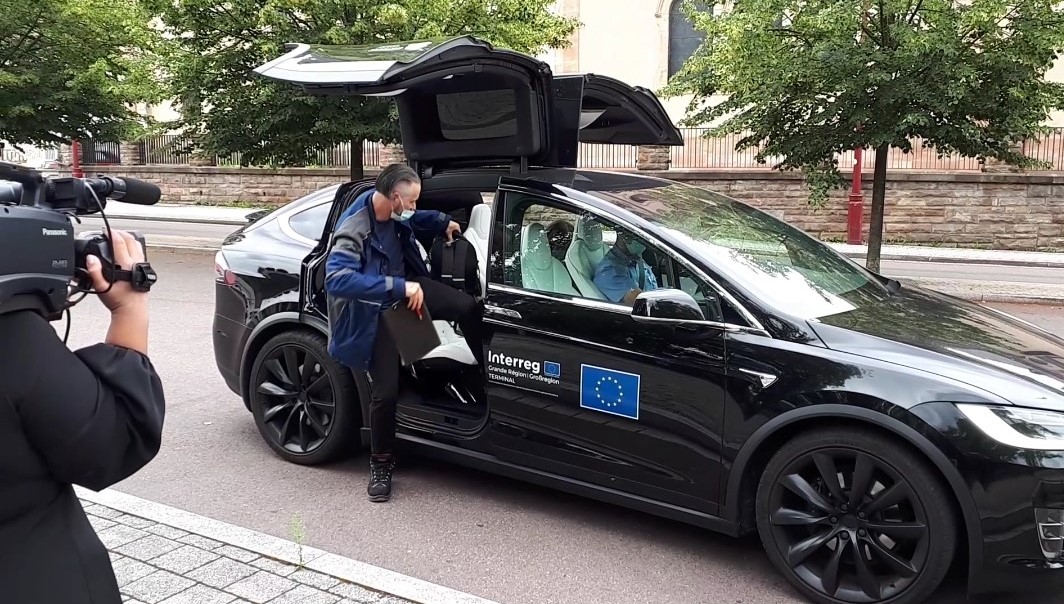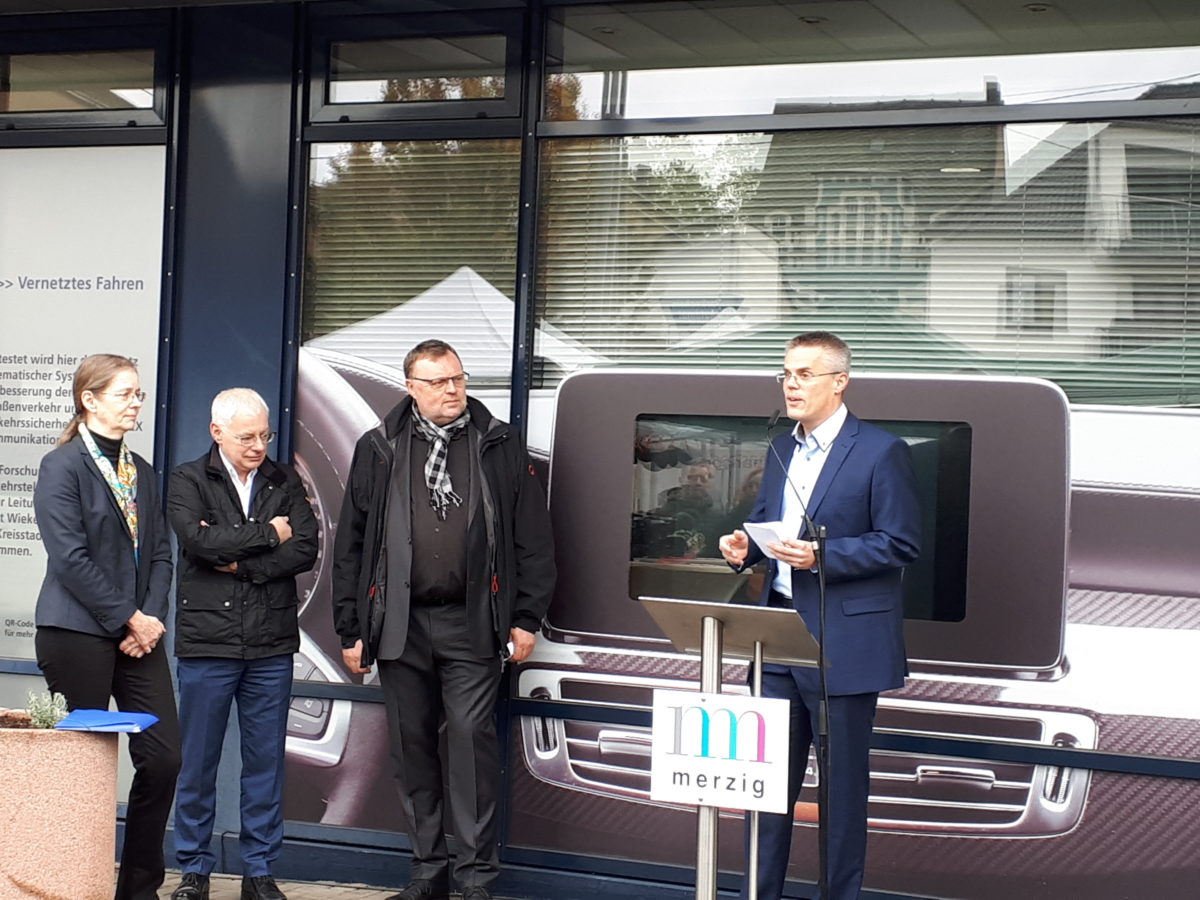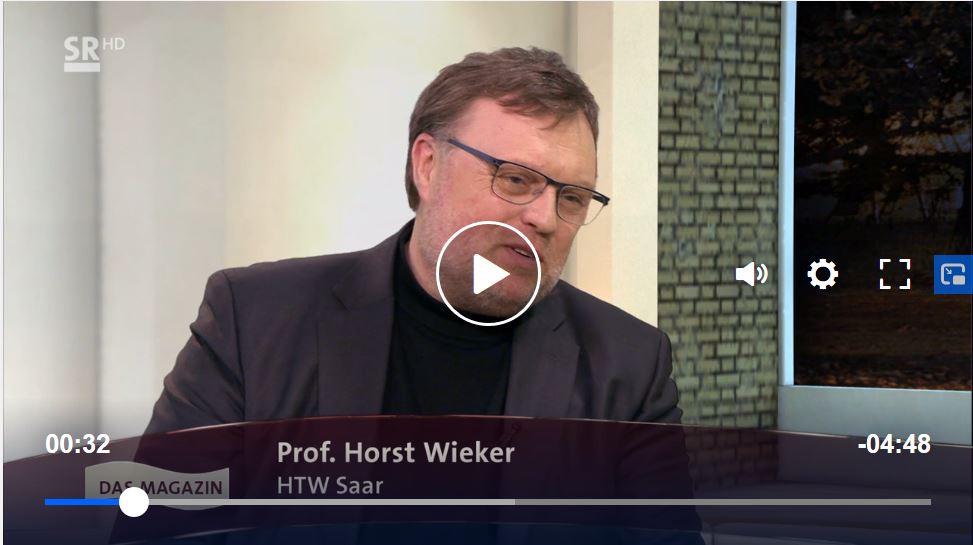July 12th 2021
The first cross-border commuters test the free automated shuttle service between Creutzwald and Überherrn.
The long-awaited start signal has been given and the automated shuttle service is up and running! «Professor Bousonville of the htw saar is delighted and very proud after two years of work on the TERMINAL project. His colleague, Professor Wieker, adds: «This is an important step for cross-border traffic.
After initially investigating the framework conditions for automated transport in the border region, testing the reactions of the vehicles on the route in a dry run phase and intensively training the accompanying drivers (provided by KVS GmbH), the time has come for practical testing: the cross-border automated electric shuttle service is to be tested under real traffic conditions during a three-month trial period,
Two TESLA Model Xs will be used to cover the long distance (17 km) between Creutzwald and the «Im Häsfeld» industrial estate in Überherrn-Altforweiler. The shuttle service offers registered commuters the unique opportunity to try out this innovative mobility concept free of charge. From Monday to Friday between July and September, the vehicles will take commuters from France to their workplace (morning, office, afternoon or night).
The first trip starts shortly after 5 a.m. and the last one ends shortly before midnight. The shuttle service is designed to fully meet the needs of commuters. On some days, the shuttle will run only a few times, while on others it will serve all workplaces.
Although the vehicles can accommodate up to five passengers, the project’s sanitation plan stipulates that a maximum of two passengers can use the shuttle service simultaneously.
Throughout the experimental phase, technical data from the vehicle will be collected to indicate when and in what situations the vehicle is running in autopilot mode and when, on the contrary, it is necessary for accompanying drivers to take over control of the vehicle.
Passenger experiences and driving sensation will also be collected in the form of surveys and their analysis will provide important insights into the acceptance and limitations of such a mobility concept.
After the test phase with cross-border commuters, it is planned to make the mobility service available to the general public. The exact timetable and registration options will be announced in due course.
Terminal is the first project to investigate a cross-border automated mobility concept. The project is financed by the «Interreg VA Grande Région» programme, the European Regional Development Fund (ERDF) and the Saarland Ministry of Economics, Labour, Energy and Transport. The Saarland University of Applied Sciences (htw saar) is the project leader.



